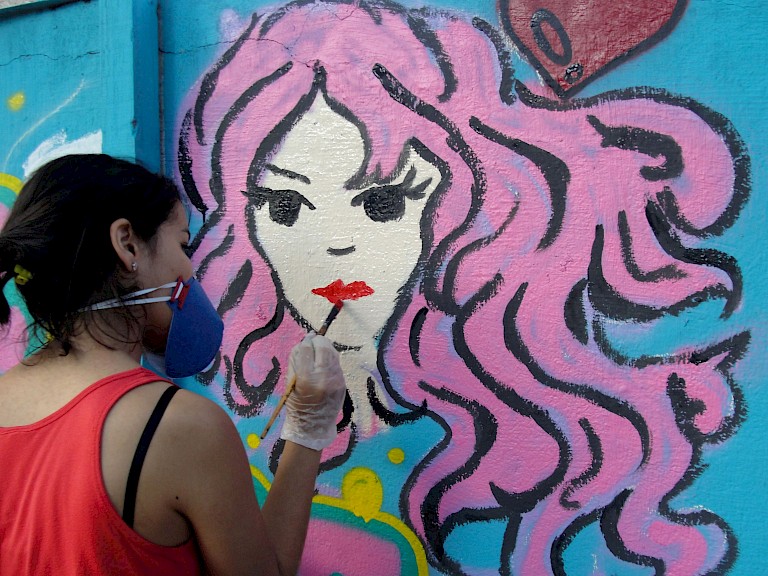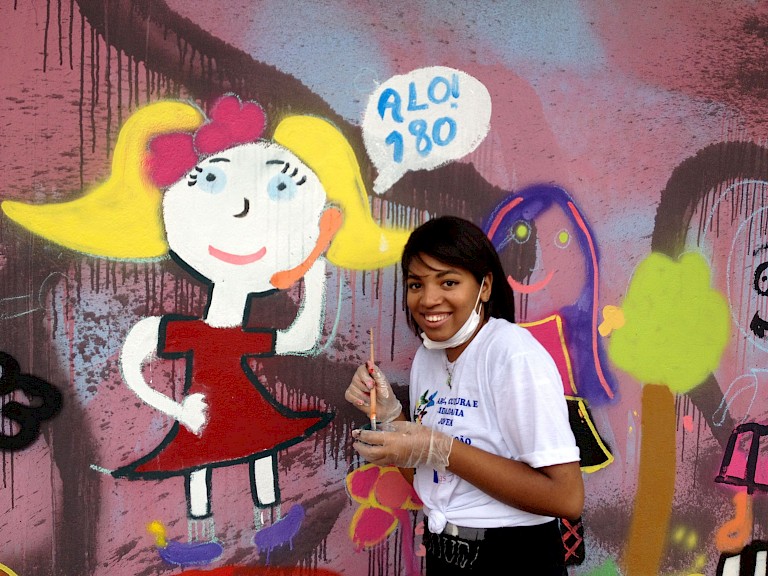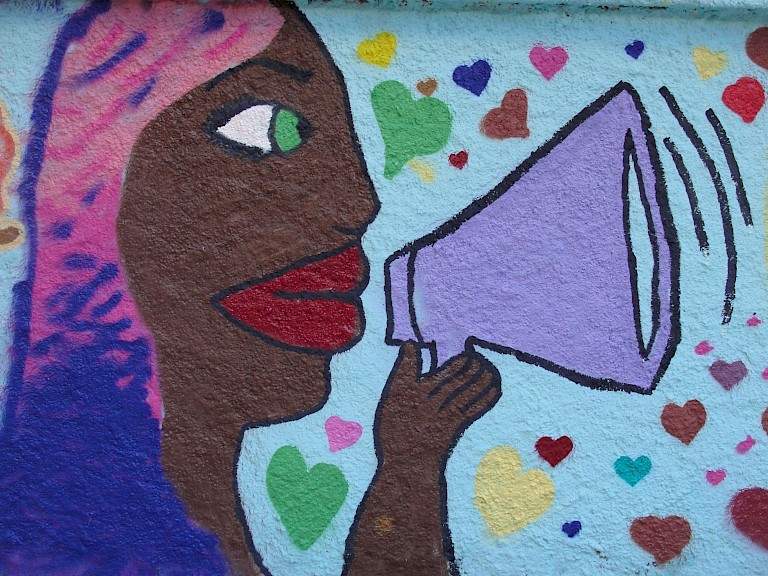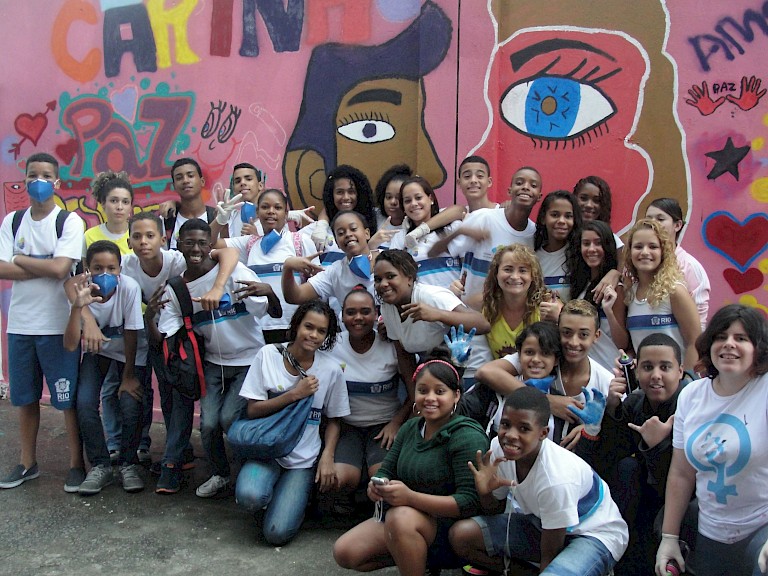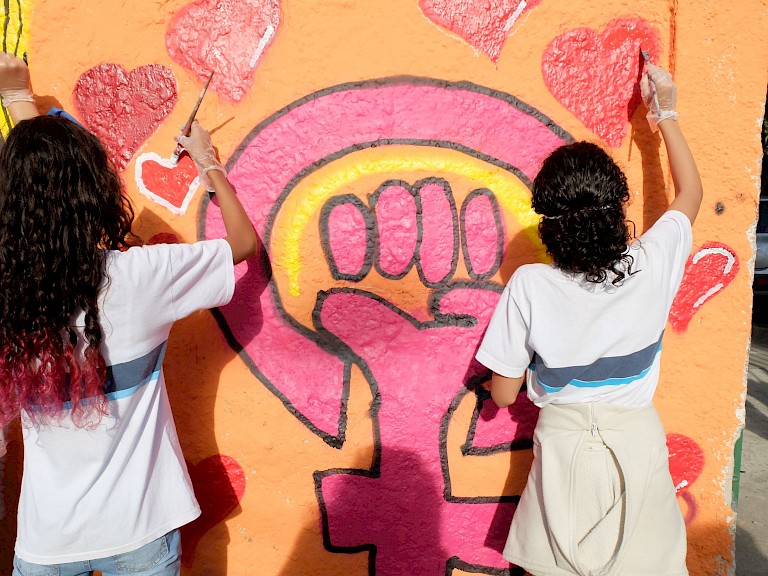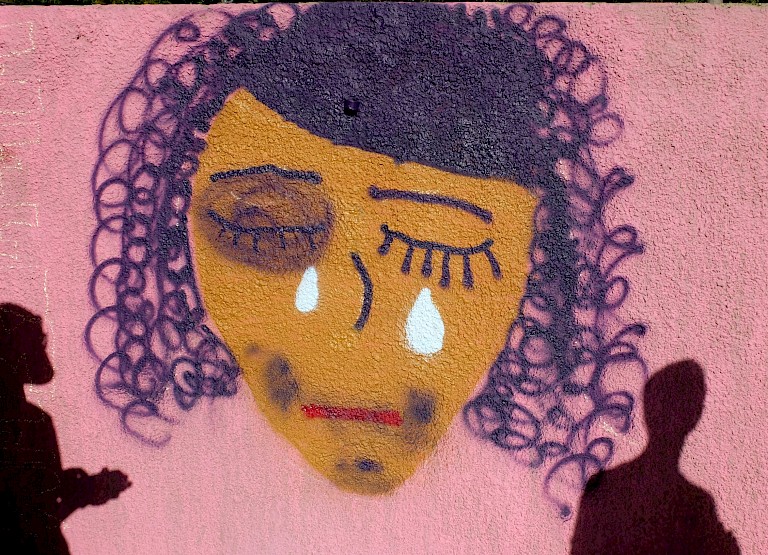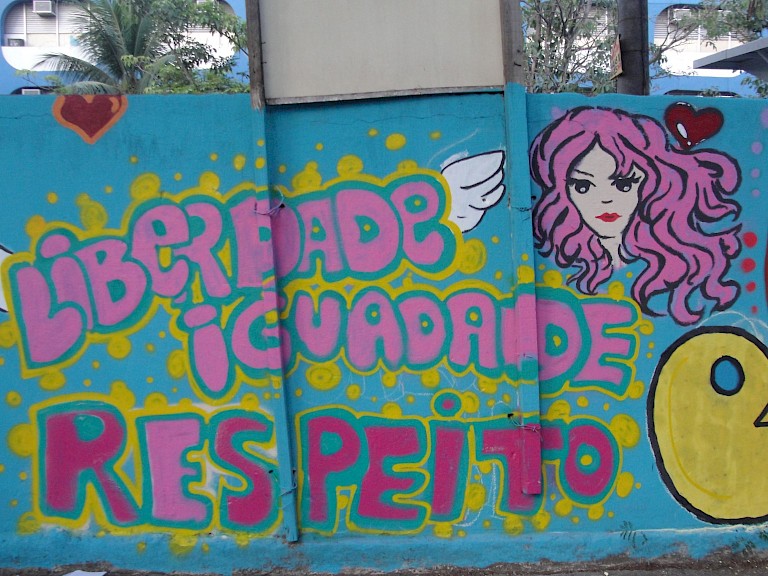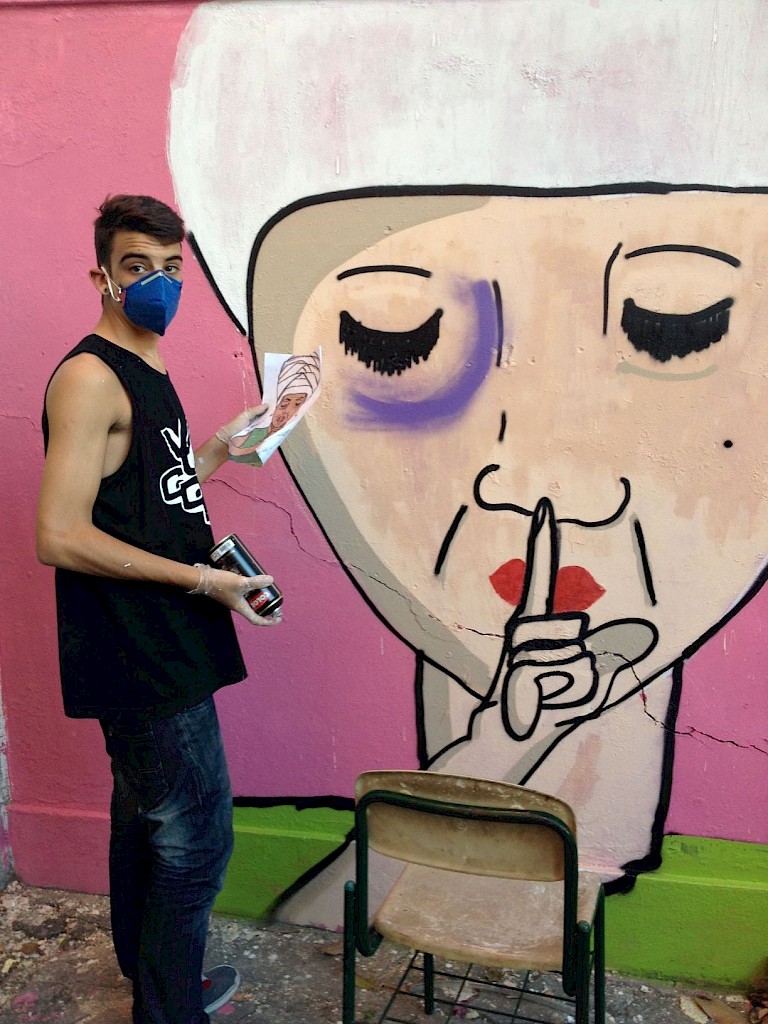Graffiti Pelo Fim da Violência Contra a Mulher (Graffiti to End Violence Against Women)
Artist: Panmela Castro
Location: Latin America
Year of Completion: 2017
Researcher: Jacob Geuder
Maria da Penha is a biopharmaceutical that suffered two attempts of murder by her husband. The first one - a gunshot while she was asleep - left her a paraplegic for life. Weeks later, he tried to electrocute her. The murder attempts occurred in 1983, but her case of domestic violence was only solved in 2002 after the Brazilian State was convicted of omission and negligence by the Inter-American Court of Human Rights. After the conviction, Brazil committed itself to reforming its laws and policies regarding domestic violence. This led to the creation of the "Maria da Penha Law," a law on domestic violence to protect vulnerable women, was created in 2006.
Panmela Castro is a Brazilian artist that has suffered from domestic violence as well. Before the Maria da Penha Law was enacted, impunity for perpertrators was almost certain in cases of violence against women. Thus, when she heard of the law, Panmela decided to make others aware of its existence and context, using the urban arts as a tool of communication.
In 2008, Graffiti Pelo fim da violência contra a Mulher (Graffiti to End Violence Against Women) emerged, with a workshop methodology developed by Panmela. This project offers occasional workshops, which take place in two segments: 1) a chat about gender equality, violence against women and the tools of the Maria da Penha Law; and 2) the teaching about the use of spray with guidelines for the preparation of a thematic graffiti, in which the content addressed during the conversation is expressed in a collective mural that continues to multiply its content while the mural remains. The workshops also take place with two audiences: 1) women over 14 years of age; and 2) young boys and girls between the ages of 14 and 19 who are studying in the public school system. As of 2017, 167 people have participated directly in our these workshops and thousands of others have been indirectly impacted by them.
Each workshop iteration of the project generates one collective graffiti artwork to promote women’s rights and the end of violence against women. These murals are located in public schools, squares, streets, and other public spaces. About 20 to 30 people participate in each workshop, coming together to create the collective artwork. The audience of each mural is composed of all people that pass.
After 10 years of the Maria da Penha Law, the situation of Brazilian women regarding domestic violence has greatly improved, but it's still critical. Every 5 minutes, a woman is beaten; every 11 minutes, one is raped. In a country that favors the rich and gives little information and support to the poor (most of them black), the numbers are higher. 62.2% of the murders of women in 2014 victimized Afro-Brazilian women; 56.8% of the victims of registered rape in the State of Rio de Janeiro in 2014 were black. These facts are why disseminating information through street and urban arts, in public schools (that have fewer investments and frequently less quality), and poorer communities, allows artists to reach those who need these messages the most. In order to increase the impact of the project, we hold online campaigns with photos of those murals and data about women situation in Brazil and how to access the tools of protection for vulnerable women.
Graffiti Pelo Fim da Violência Contra a Mulher is Panmela Castro’s oldest social project. It was this project that made it possible for her to create NAMI, an NGO that uses urban arts to promote women’s rights.
Since it’s inception, the project offered over 100 workshops in Rio de Janeiro, Brazil and around the world, receiving several awards and nominations of national and international organizations, like the "Diploma Heloneida Studart de Cultura," given to people and organizations focused in promoting culture in Rio de Janeiro (in 2017, NAMI received the award and Panmela Castro was honoured artist) and the nomination of Panmela for the "Prêmio de Empreendedor Social" of "Folha de São Paulo" and the "Prêmio Cláudia", of "Revista Cláudia," both on culture category for her work at NAMI and as one to promote women’s rights and culture in Brazil.
Image Credits: Rede NAMI
All copyright belongs to Shanghai Academy of Fine Arts, Shanghai University.




